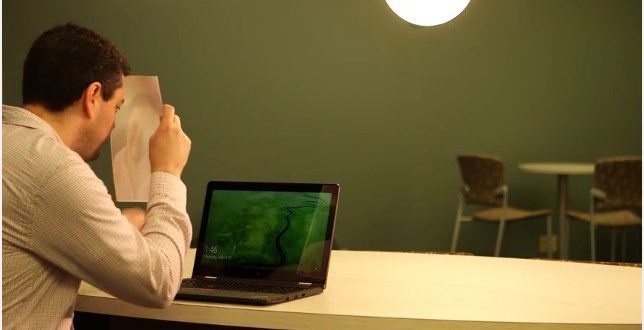Microsoft might be a little late when we speak of authentication systems, especially those involving Biometric sensors. Henceforth, it might not have a great impact on the market that it operates in. To tackle this, the company might work in new niches to implement its technology.
The software giant in its recent Ignite 2016 conference stated that Windows Hello authentication might be available on more devices other than its own. This means that Windows Hello could finally diversify to iOS Android devices. Let’s dive in to see some more details on the subject.
“When you think about a user and the kind of devices they carry with them,” Microsoft senior program manager lead Anoosh Saboori said during the session, “they normally have the phone in their pocket, they [might] have some kind of wearable on their arm, some of them might have the security fobs given to them by their company, and many of us carry a badge with us that is used to gain access to different physical locations. We wanted to leverage these devices as a way to knowing the user.”
Obviously, the phone is the best device to use, because more people have this device with them at all times compared to the other device types. It can be used as a PIN or biometric replacement, where the credentials are still stored on the PC. Or it can store the credentials right on the phone, where both the credentials and the second security factor are mobile; in this case, you could sign-in to any PC in your company’s offices. (Other device types, like fitness bands, may only be able to handle the first of those two scenarios, depending on the device.)
Saboori’s talk focused only on businesses—in fact, he referred to “Windows Hello for business” many times—but there’s no reason that the first of the two scenarios noted above couldn’t work on consumer PCs. In fact, I wouldn’t be surprised if the Microsoft Authenticator app became the conduit for this activity. But during the Q&A, he noted that an RSA demo he did earlier in the talk “was an iPhone solution,” which I suspect is what inspired the IDG story to focus on iPhone.
“There are other solutions coming for iPhone too,” he said, “more than one, but that [the RSA solution] is the closest one to shipping.” IDG should have kept listening, as Saboori later said that Android solutions were coming from partners too. But in both cases, I think he was referring only to business solutions.
Looking to the future, Saboori also noted that Windows Hello would someday be extended so that the PC will automatically lock when the companion device that unlocked it moves too far away from the PC.
Agencies/Canadajournal
 Canada Journal – News of the World Articles and videos to bring you the biggest Canadian news stories from across the country every day
Canada Journal – News of the World Articles and videos to bring you the biggest Canadian news stories from across the country every day



